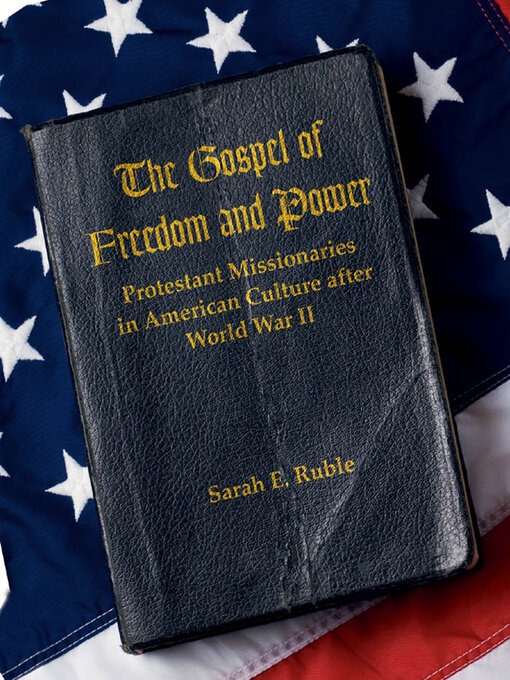- All Magazines
- Popular Magazines: Always Available
- Cooking and Food Magazines
- Craft Magazines
- News and Politics
- See all
-
Description
-
Details
Bringing together a wide range of sources, Ruble seeks to understand how discussions about a relatively small group of Americans working abroad became part of a much larger cultural conversation. She concludes that whether viewed as champions of nationalist revolutions or propagators of the gospel of capitalism, missionaries—along with their supporters, interpreters, and critics—ultimately both challenged and reinforced a rhetoric of exceptionalism that made Americans the judges of what was good for the rest of the world.

Kindle Book
- Release date: September 17, 2012
OverDrive Read
- ISBN: 9781469601601
- File size: 2609 KB
- Release date: September 17, 2012
EPUB ebook
- ISBN: 9781469601601
- File size: 2609 KB
- Release date: September 17, 2012
Formats
Kindle Book
OverDrive Read
EPUB ebook
Languages
English
Bringing together a wide range of sources, Ruble seeks to understand how discussions about a relatively small group of Americans working abroad became part of a much larger cultural conversation. She concludes that whether viewed as champions of nationalist revolutions or propagators of the gospel of capitalism, missionaries—along with their supporters, interpreters, and critics—ultimately both challenged and reinforced a rhetoric of exceptionalism that made Americans the judges of what was good for the rest of the world.

-
Details
Publisher:
The University of North Carolina Press
Kindle Book
Release date: September 17, 2012
OverDrive Read
ISBN: 9781469601601
File size: 2609 KB
Release date: September 17, 2012
EPUB ebook
ISBN: 9781469601601
File size: 2609 KB
Release date: September 17, 2012
-
Creators
- Sarah E. Ruble - Author
-
Formats
Kindle Book
OverDrive Read
EPUB ebook
-
Languages
English
Why is availability limited?
×Availability can change throughout the month based on the library's budget. You can still place a hold on the title, and your hold will be automatically filled as soon as the title is available again.
The Kindle Book format for this title is not supported on:
×Read-along ebook
×The OverDrive Read format of this ebook has professional narration that plays while you read in your browser. Learn more here.
